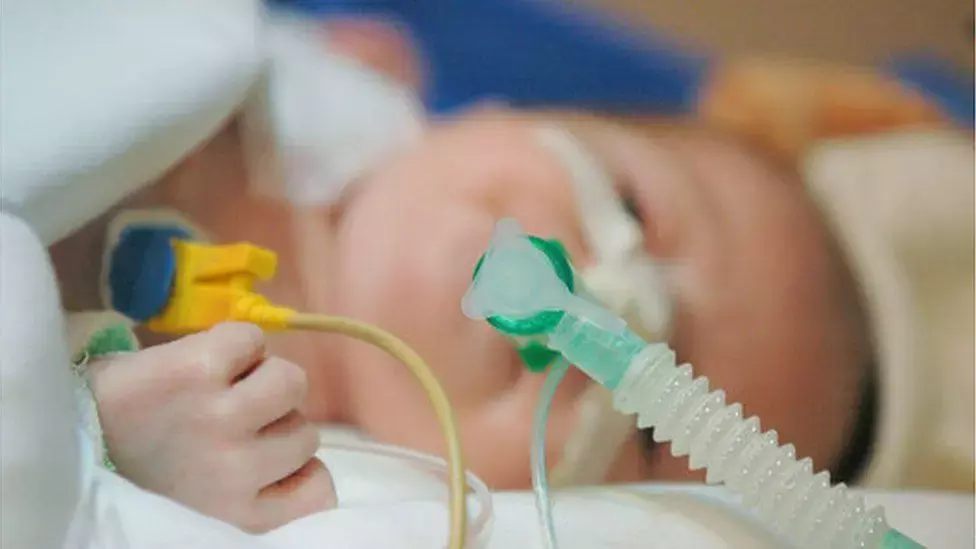- Home
- Medical news & Guidelines
- Anesthesiology
- Cardiology and CTVS
- Critical Care
- Dentistry
- Dermatology
- Diabetes and Endocrinology
- ENT
- Gastroenterology
- Medicine
- Nephrology
- Neurology
- Obstretics-Gynaecology
- Oncology
- Ophthalmology
- Orthopaedics
- Pediatrics-Neonatology
- Psychiatry
- Pulmonology
- Radiology
- Surgery
- Urology
- Laboratory Medicine
- Diet
- Nursing
- Paramedical
- Physiotherapy
- Health news
- Fact Check
- Bone Health Fact Check
- Brain Health Fact Check
- Cancer Related Fact Check
- Child Care Fact Check
- Dental and oral health fact check
- Diabetes and metabolic health fact check
- Diet and Nutrition Fact Check
- Eye and ENT Care Fact Check
- Fitness fact check
- Gut health fact check
- Heart health fact check
- Kidney health fact check
- Medical education fact check
- Men's health fact check
- Respiratory fact check
- Skin and hair care fact check
- Vaccine and Immunization fact check
- Women's health fact check
- AYUSH
- State News
- Andaman and Nicobar Islands
- Andhra Pradesh
- Arunachal Pradesh
- Assam
- Bihar
- Chandigarh
- Chattisgarh
- Dadra and Nagar Haveli
- Daman and Diu
- Delhi
- Goa
- Gujarat
- Haryana
- Himachal Pradesh
- Jammu & Kashmir
- Jharkhand
- Karnataka
- Kerala
- Ladakh
- Lakshadweep
- Madhya Pradesh
- Maharashtra
- Manipur
- Meghalaya
- Mizoram
- Nagaland
- Odisha
- Puducherry
- Punjab
- Rajasthan
- Sikkim
- Tamil Nadu
- Telangana
- Tripura
- Uttar Pradesh
- Uttrakhand
- West Bengal
- Medical Education
- Industry
Prophylactic Oropharyngeal Surfactant at birth fails to reduce Intubation Rates among preterm newborns

A recent study published in Journal of American Medical Association suggests that administration of prophylactic oropharyngeal surfactant to newborns born before 29 weeks of gestational age does not reduce the need for intubation during the critical first 120 hours of life.
This clinical trial included 251 newborns born before 29 weeks of gestation without severe congenital anomalies. This study from December 2017 to September 2020 was conducted in Prophylactic Oropharyngeal Surfactant for Preterm Infants (POPART) trial across nine tertiary NICU. The infants were either assigned to receive oropharyngeal surfactant at birth in addition to continuous positive airway pressure (CPAP) or CPAP alone. The primary outcome measured was the need for intubation within 120 hours of birth due to bradycardia, apnea, or respiratory failure.
The outcomes found that, among the participants, the rate of intubation within the specified time frame did not significantly differ between the oropharyngeal surfactant group and the control group.
63.5% of infants in the oropharyngeal surfactant group and 64.8% in the control group required intubation (relative risk, 0.98 [95% CI, 0.81-1.18]).
However, this study indicate that more newborns in the oropharyngeal surfactant group were diagnosed with and treated for pneumothorax compared to the control group (16.6% vs. 6.4%, P = .04).
The randomized clinical trial concluded that the prophylactic administration of oropharyngeal surfactant to newborns born before 29 weeks of gestation did not result in a reduced rate of intubation in the first 120 hours of life. These findings challenge the routine use of surfactant administration into the oropharynx immediately after birth in addition to CPAP for preterm infants and this prompts a reevaluation of existing protocols in neonatal intensive care units.
Reference:
Murphy, M. C., Miletin, J., Klingenberg, C., Guthe, H. J., Rigo, V., Plavka, R., Bohlin, K., Barroso Pereira, A., Juren, T., Alih, E., Galligan, M., & O’Donnell, C. P. F. (2023). Prophylactic Oropharyngeal Surfactant for preterm newborns at birth: A randomized clinical trial. JAMA Pediatrics. https://doi.org/10.1001/jamapediatrics.2023.5082
Neuroscience Masters graduate
Jacinthlyn Sylvia, a Neuroscience Master's graduate from Chennai has worked extensively in deciphering the neurobiology of cognition and motor control in aging. She also has spread-out exposure to Neurosurgery from her Bachelor’s. She is currently involved in active Neuro-Oncology research. She is an upcoming neuroscientist with a fiery passion for writing. Her news cover at Medical Dialogues feature recent discoveries and updates from the healthcare and biomedical research fields. She can be reached at editorial@medicaldialogues.in
Dr Kamal Kant Kohli-MBBS, DTCD- a chest specialist with more than 30 years of practice and a flair for writing clinical articles, Dr Kamal Kant Kohli joined Medical Dialogues as a Chief Editor of Medical News. Besides writing articles, as an editor, he proofreads and verifies all the medical content published on Medical Dialogues including those coming from journals, studies,medical conferences,guidelines etc. Email: drkohli@medicaldialogues.in. Contact no. 011-43720751


